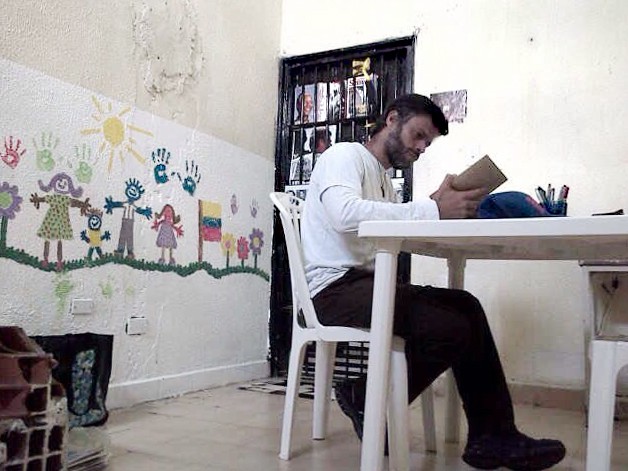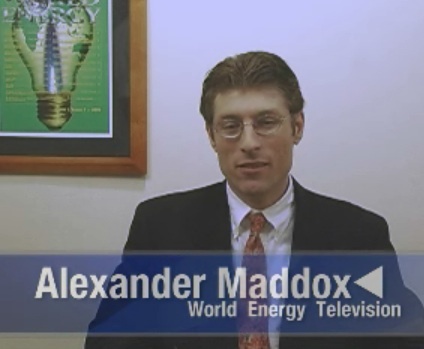Page added on December 16, 2017
Oil Has Cursed Venezuela
When I was 16, I toured the massive oil fields of Zulia State, about a day’s drive from my hometown of Caracas. It was then that I realized that the country’s massive wealth potential was at odds with the widespread poverty that was all around me. I was too young to know anything about resource curses, the all-too-frequent phenomenon in which a country’s natural-resource wealth feeds economic distortions and inequality. But you didn’t have to be an academic to understand something was terribly wrong. I have never stopped thinking about the dichotomy in Venezuela between the wealth underground and the poverty on the surface.

That was 30 years ago. Today the contrast is more severe. Venezuela has the world’s worst economy, even though it has the world’s largest oil reserves. The paradox is that, even though oil helped lead the country to its present devastation, the same resource is essential to getting it out.
When I ask economists for historical parallels, they tell me none exist in modern times. Our current hyperinflation—expected by one estimate to reach 2,300 percent in 2018—has been matched by only a handful of countries in the past 100 years, including post-World War I Germany, and Zimbabwe in 2008.
But even among these examples, Venezuela stands alone. We have no real industry apart from oil, there are few businesses, and we import nearly everything, including—shockingly—oil itself: This year, Venezuela must import up to 30 percent of its oil needs from other countries, because of how badly our refining capability has deteriorated. It is now common to see long queues for gasoline, a development that was unimaginable just a few years ago.

And yet, oil is our lifeline to recovery. Venezuela today holds 20 percent of the world’s estimated oil reserves: more than those of Kuwait, Russia, Qatar, Mexico, and the United States combined. Venezuela also has around 200 trillion cubic feet of gas reserves—the largest reserves in Latin America and the 8th largest in the world. Petroleum generates the vast majority of our economic activity, accounting for 95 percent of our exports and half of GDP.
More insidiously, our way of managing oil proceeds has encouraged an unhealthy rent-seeking relationship between the people and the state. The state maintained a monopoly on distributing the benefits of oil, feeding a relationship of dependency among citizens and private interests, who over time became accustomed to thinking of oil wealth as something the government provides, rather than as something they own.
This provided fertile ground for the emergence of the populist demagogue Hugo Chavez, who—taking advantage of a massive spike in oil prices beginning in 2002—used the windfall to extend the people’s dependence to unprecedented levels. The oil boom allowed the regime to buy votes and goodwill even as it seized, undermined, and dismantled competing facets of the economy.
By the time the windfall ended, independent institutions and businesses had been so weakened that, perversely, people became yet more dependent on the government, which could no longer afford to provide for them. The population was reduced to relying on the small favors the government could grant, translating to political dominance and oppression. And the further collapse of the economy under Chávez’s successor, Nicolas Maduro, has been strategically useful to his regime. An entire population is now in subsistence mode. It is hard to protest when it takes half a day’s search to track down basic staples.
It starts with increasing production. Despite holding 20 percent of world’s oil reserves, we account for less than 2 percent of the world’s oil production. Gross mismanagement, rampant corruption, failure to maintain the infrastructure, and the persecution and exodus of vital expertise have crippled the Venezuelan oil industry. Petroleos de Venezuela (PDVSA), the state-owned oil company, currently produces less than 2 million barrels per day—far below its potential and nearly 50 percent below a high of 3.7 million barrels per day in 1970.

Fixing this is not something we can afford without outside investments. But who would provide it, now that we are viewed as one of the most unreliable partners in the world? The only way to make the Venezuelan oil industry “investible” again is to reform PDVSA to be more efficient and profitable, and to prove the trustworthiness of our institutions by creating strong oversight. It’s feasible that doing so could more than double production in a little over a decade.
That’s the easier part. More important is to reverse the people’s dependency by managing the oil proceeds in a radically different fashion. For many Venezuelans, oil is a curse. To most, it is a mystery that has been left to a small subset of elites to manage. The Venezuelan people deserve to have a say in the management of this resource.
These accounts could be used to pay for health care, housing, education, or other long-term needs. At retirement age, citizens would receive a pension based on the assets in the fund. To promote transparency and independence from the government, the fund’s assets could be managed by an independent board, with tight rules governing their qualifications and independence.
Whereas today the Venezuelan government funds itself directly from the proceeds of PDVSA, under this scheme it would be funded directly by the people through a 50 percent tax on the assets in the individual funds. This would reverse the current dynamic, making the government the beneficiary of the people.
The money is one benefit, but the mindset is more important. Our goal must be nothing less than a fundamental transformation of the relationship between the people and the government.
Oil is not sufficient to build a healthy economy or power a vibrant society. Ideally over time, oil and gas would have a smaller footprint in a much more diverse Venezuelan economy.
Norway is a great example of how this can be done. Today, Norway’s companies in shipping, engineering, drilling, services and technology, and dozens of other sectors—all initially nurtured by the petroleum sector—form the foundation for economic expansion across a range of rising industries, including fish-farming, bio-refining, logging, and mining. Expertise related to the oil and gas industry—not just the oil and gas itself—is now a major Norwegian export.
This is one set of ideas, and of course the only way to know whether the Venezuelan people favor them is to let them vote, in a free and fair referendum that truly empowers the people as directors of their future. But Venezuela is racing against time. Fears of “peak oil” have been replaced by the threat of “peak demand.” The danger is not that Venezuela’s resources will run out; it’s that our energy wealth will stay in the ground, untapped and unrealized—while people starve and the country disintegrates.
A thriving oil sector does not have to be a trap or a curse for Venezuela’s economy.
And the very thing that helped a succession of governments drive a country into the ground, handled the right way might just save it.
10 Comments on "Oil Has Cursed Venezuela"


Anonymous on Sat, 16th Dec 2017 7:39 am
Shows the issues of the resource curse (and of socialism). But I wonder how much is issues of the culture. Not like Latin America has a great record of being like Norway in terms of law and order, anticorruption, etc.
Wittmannn on Sat, 16th Dec 2017 9:59 am
Corruption was referred as the Latin American disease.Bolivia was label as beggar sitting on top of a gold mountain.Taoism concludes in very precise manner that our leaders.,in case of Venezuela Chavez and Maduro are just a reflection of its people.
Duncan Idaho on Sat, 16th Dec 2017 7:24 pm
Has anyone spent actual time there?
It seems like the commentators are somewhat lacking in real experience.
luiskendall on Sun, 17th Dec 2017 12:36 pm
[email protected]
luiskendall on Sun, 17th Dec 2017 12:38 pm
The corruption and the low education of our 2 last president has carried our country to this dissaster
Duncan Idaho on Sun, 17th Dec 2017 2:42 pm
“Of course, if banking sanctions forbid you selling it, there’s no reason to produce it. Bitcoin is coming.”
-watcher
Wittmannn on Mon, 18th Dec 2017 11:14 am
Venezuela most corrupt country in
the Americas.
166/176(corruption index).
https://www.transparency.org/news/feature/corruption_perceptions_index_2016
onlooker on Mon, 18th Dec 2017 11:44 am
Sorry Wittman, that would be the US
Hello on Mon, 18th Dec 2017 1:16 pm
>> that would be the US
are you sure? What makes you think so?
Have you ever been in the US or in a banana republic to compare besides being a tourist? Have you ever tried to get anyhting done in mexico for example, like building a house, or running a business? Probably not.
Wait, are you canadian? That would explain. Those guys are not very smart.
peakyeast on Tue, 19th Dec 2017 5:39 pm
I have a feeling that Venezuela would have much less problems if they were just 10% of current population.